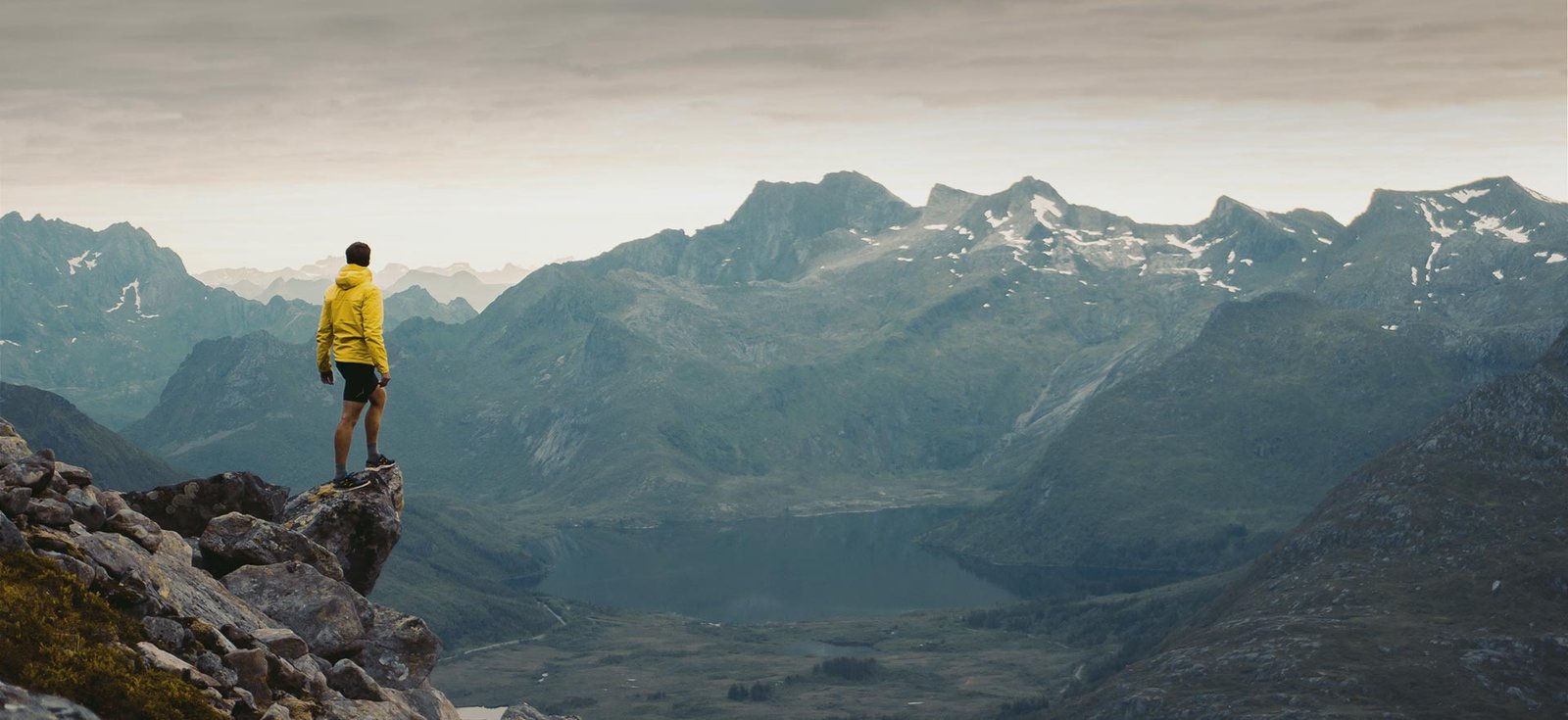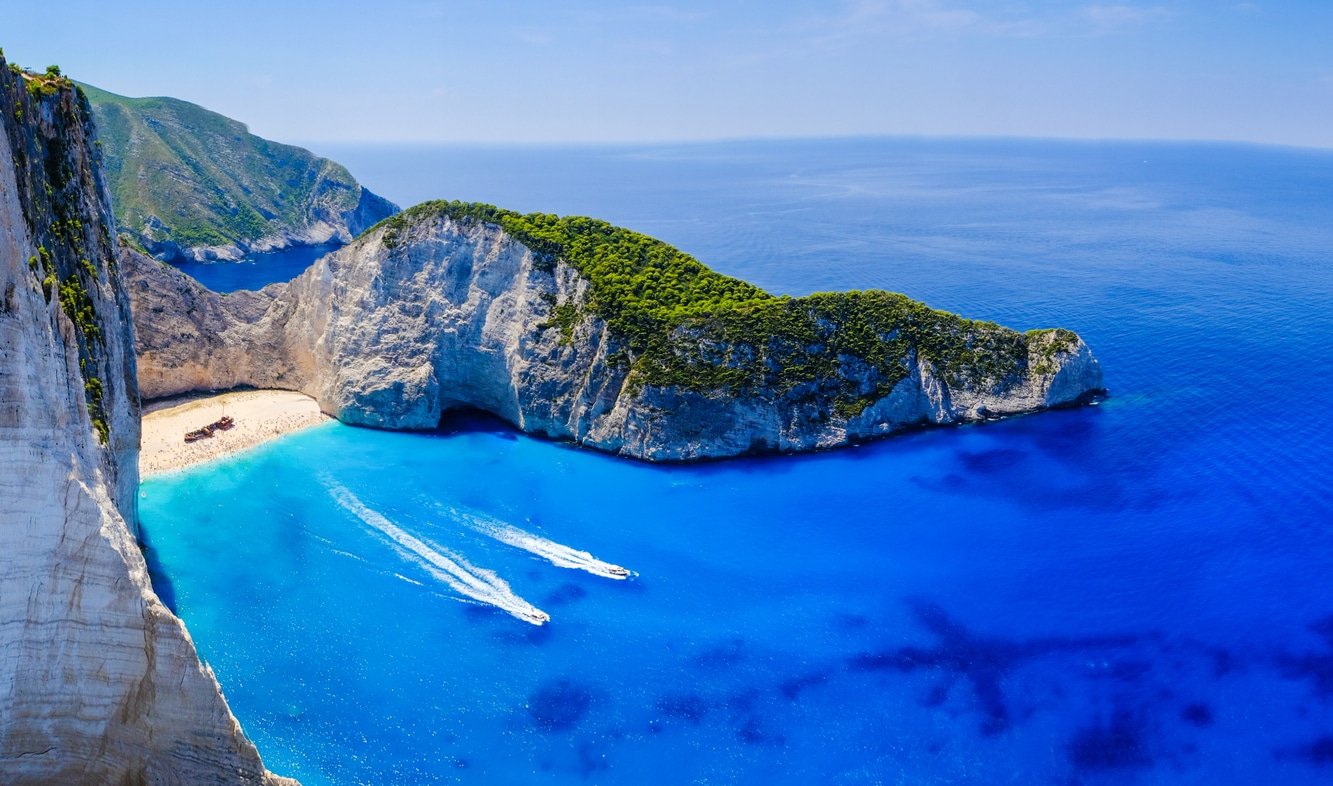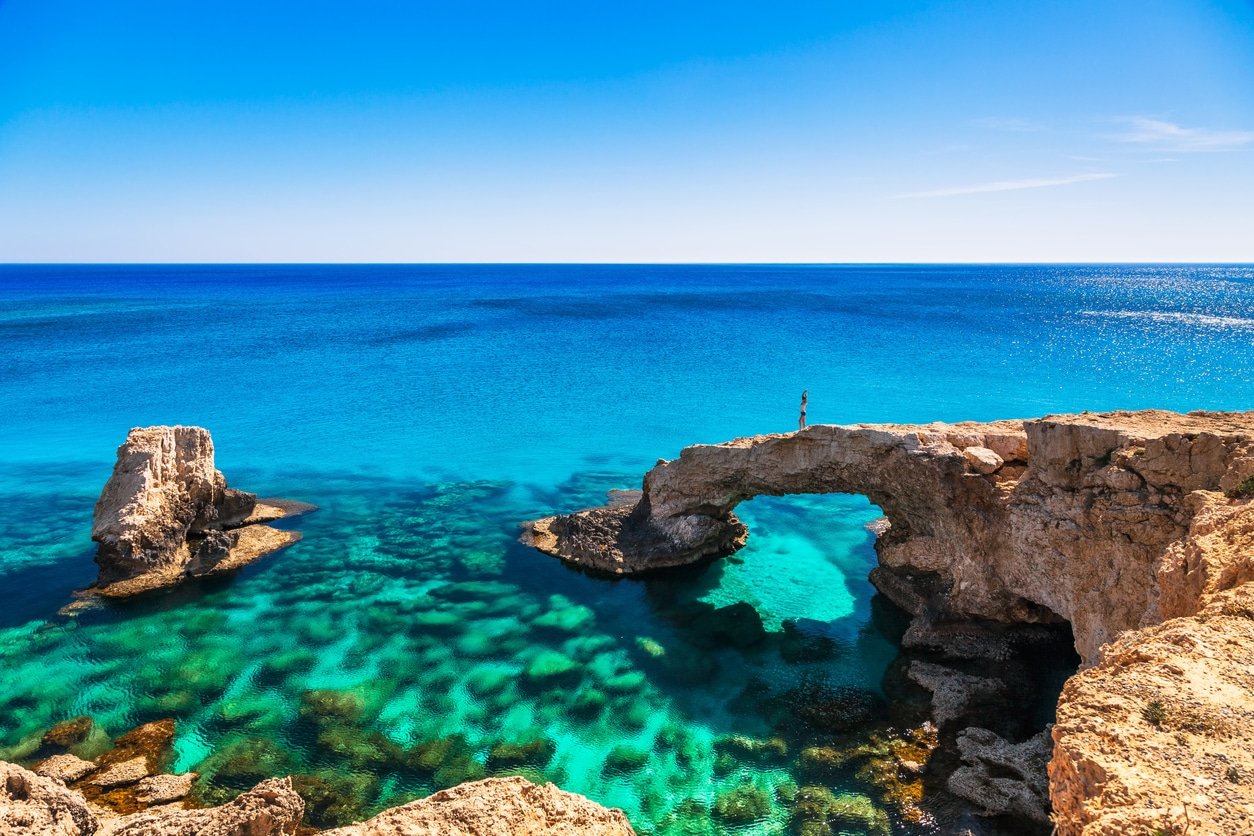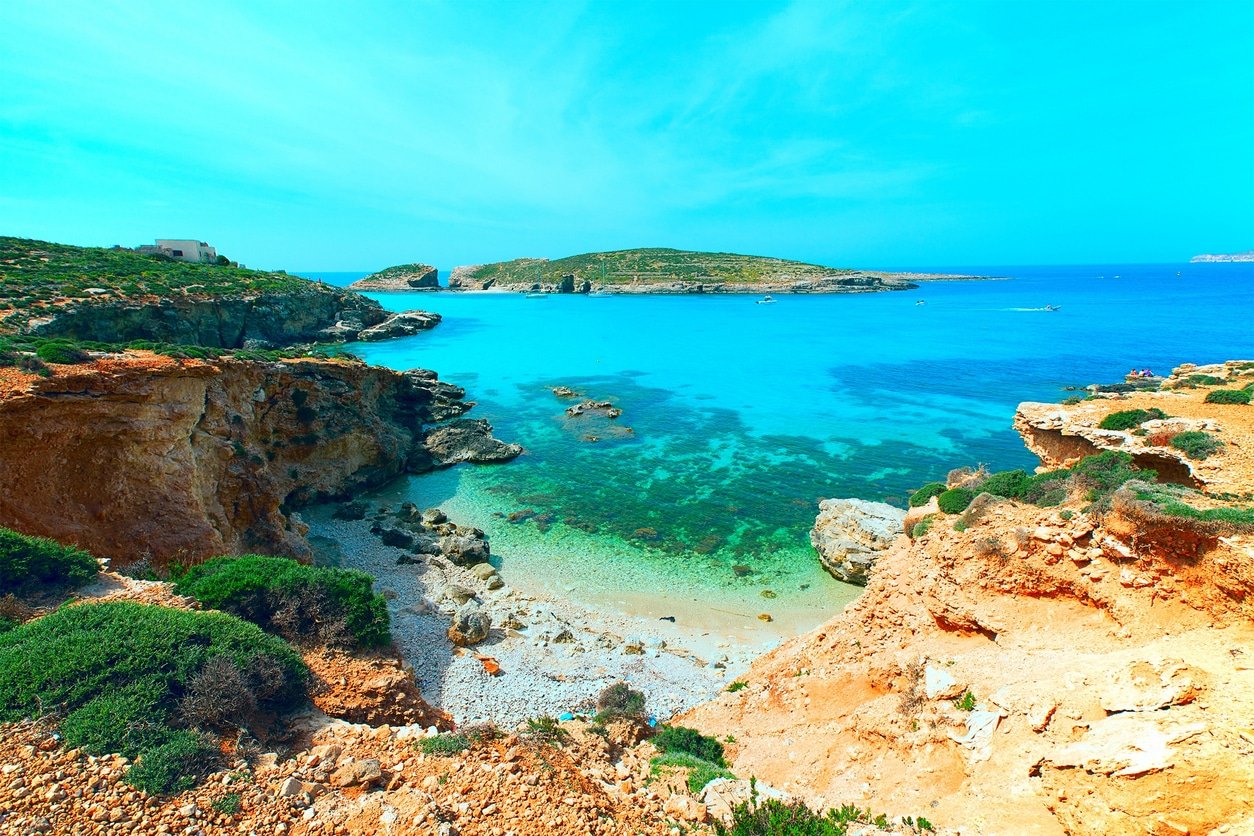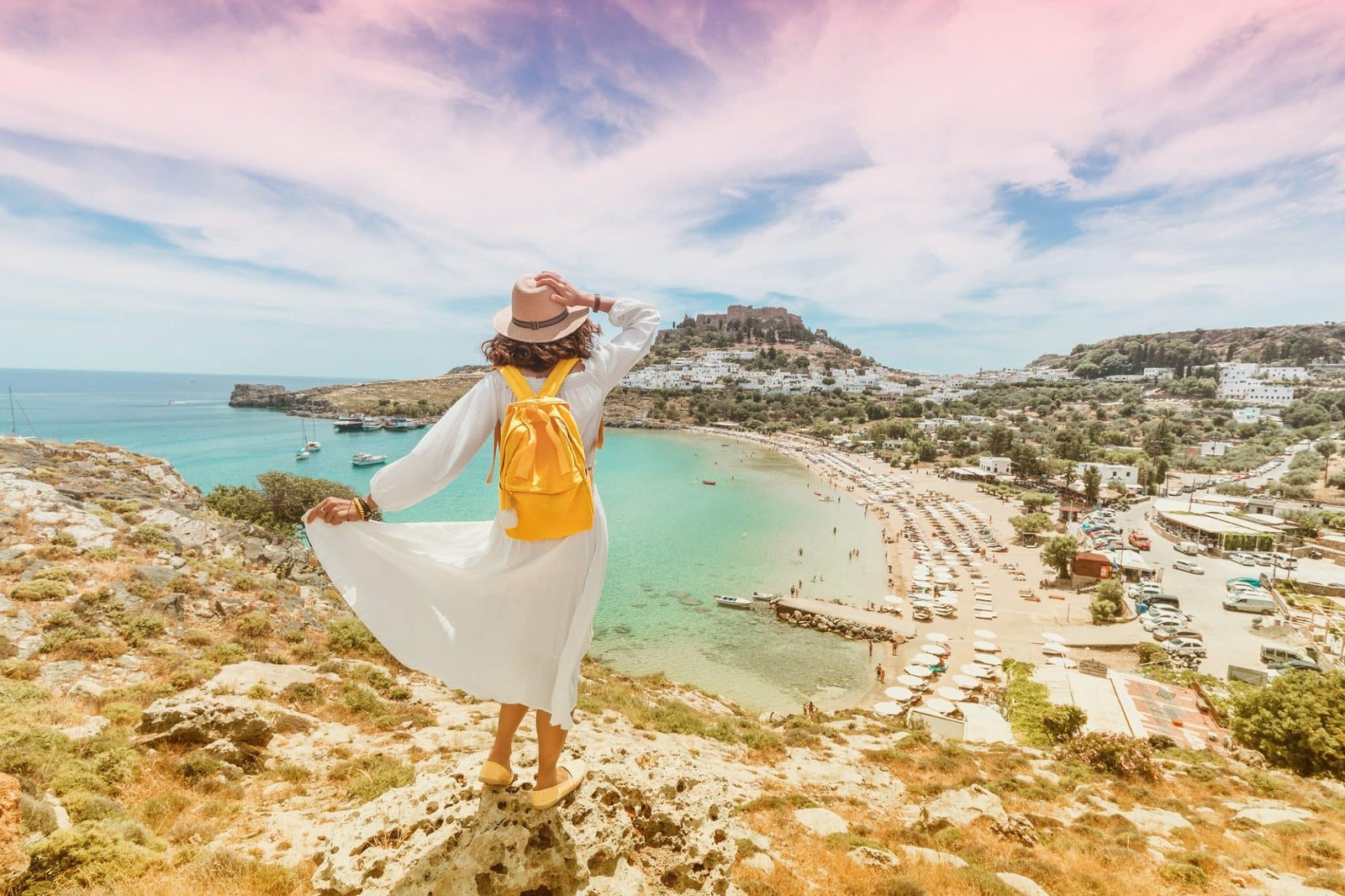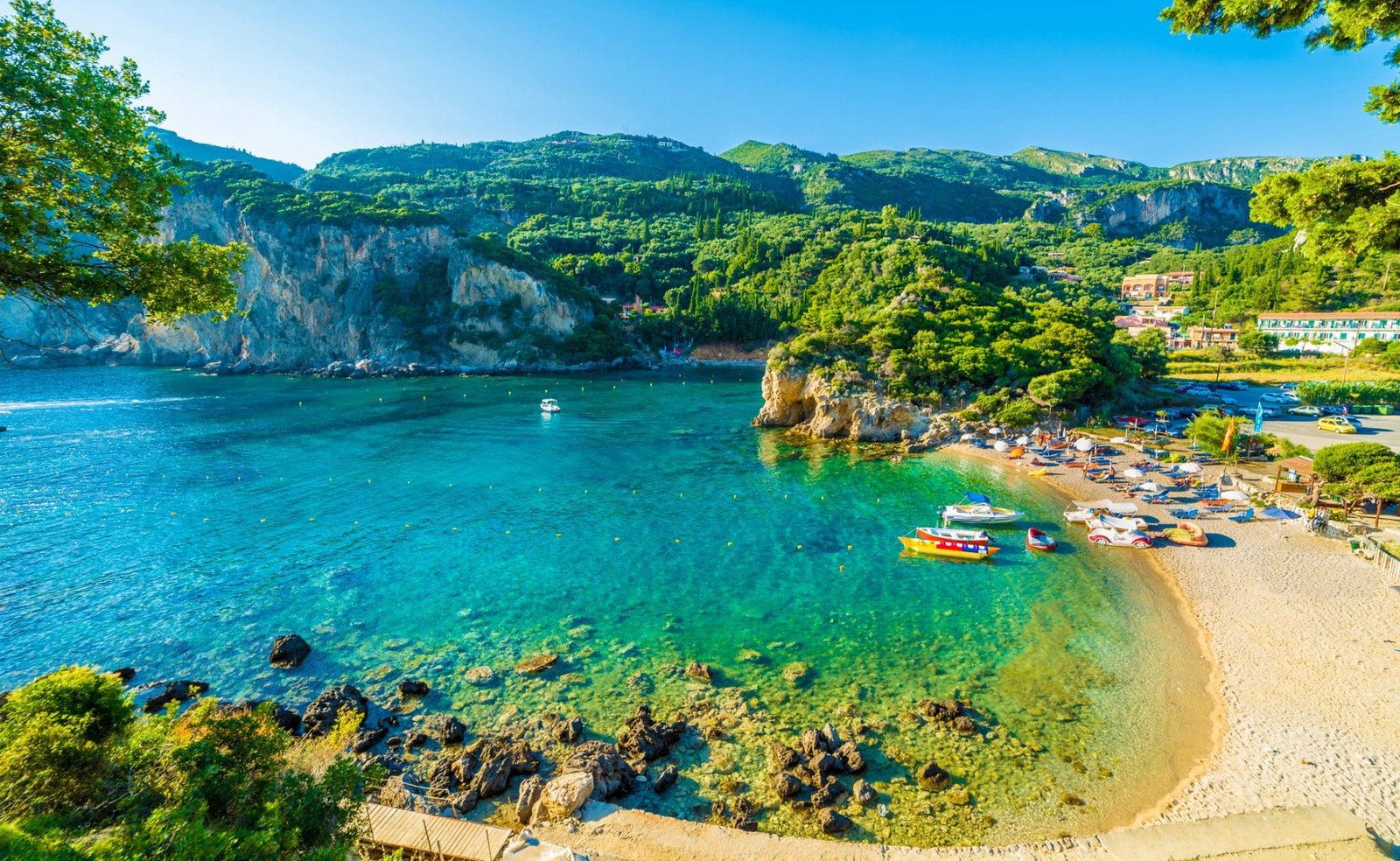Camping In Greece [2023]: Which Region To Camp In, Best Campsites, Wild Camping & More!
|
Prefer listening over reading? We got you covered!
Getting your Trinity Audio player ready...
|
With over 6000 Greek islands to explore, Greece is famous for its glistening turquoise waters, ideal climate, exquisite cuisine, rich history and mythology. That is what drives tourists to this country year after year, and it’s why camping in Greece is becoming more and more popular.
We cover camping in Greece in this article, showing you what each area has to offer so you can decide where you want to camp. We also share some of our favourite campsites for fun, views and adventure. Then we look at wild camping in Greece.
But first, here’s a few fun facts about Greece!
- Greece has an average of 300 days of sunshine a year.
- The country can boast 18 UNESCO World Heritage Sites.
- Greece has 9,942 miles of pristine coastline.
- It is home to a myriad of wildlife, including rare animals like the Cypriot Mouflon and the Beech Marten.
- Around 80% of Greece actually consists of mountains.
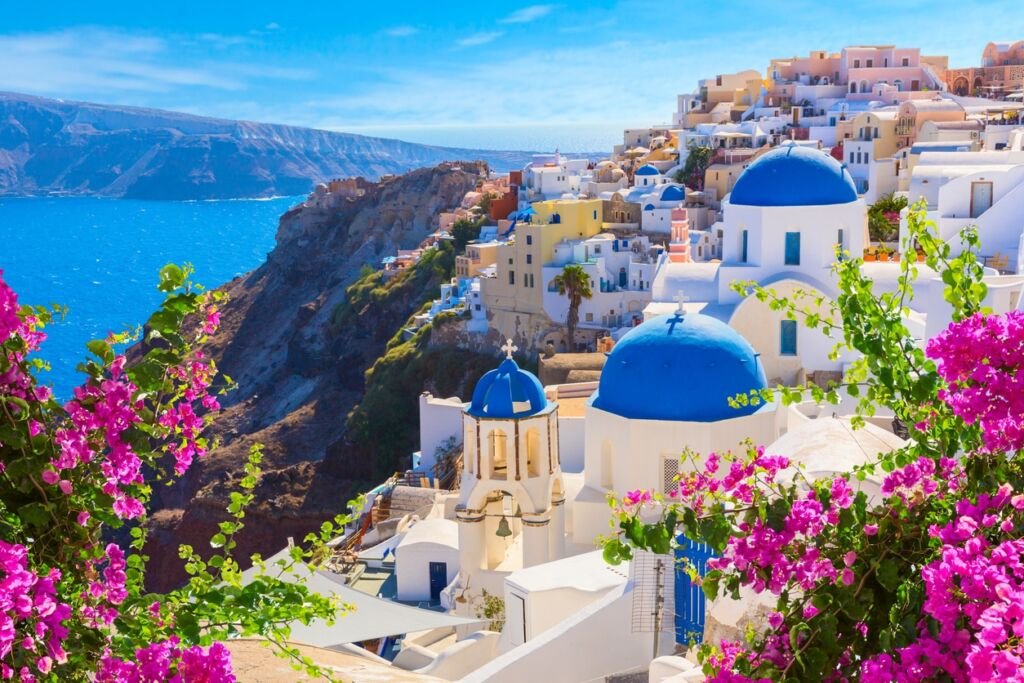
Camping In Greece: Where Should You Camp & Why Does It Matter?
Camping is highly affordable in Greece, and pitching a small tent can be much cheaper than it would be at a campsite in western Europe. And with pleasant temperatures for most of the year, camping is possible all-year round in some parts of Greece. (Recommended: The Best Greek Islands in Winter).
With amazing landmarks and incredible azure waters to discover, we recommend some great campsites that are located close to some of Greece’s best beaches and fascinating attractions. That’s later on in this article.
But first, we show you the four most common regions of Greece for camping and what each has to offer. All to help you make a decision about where you wish to camp in Greece.
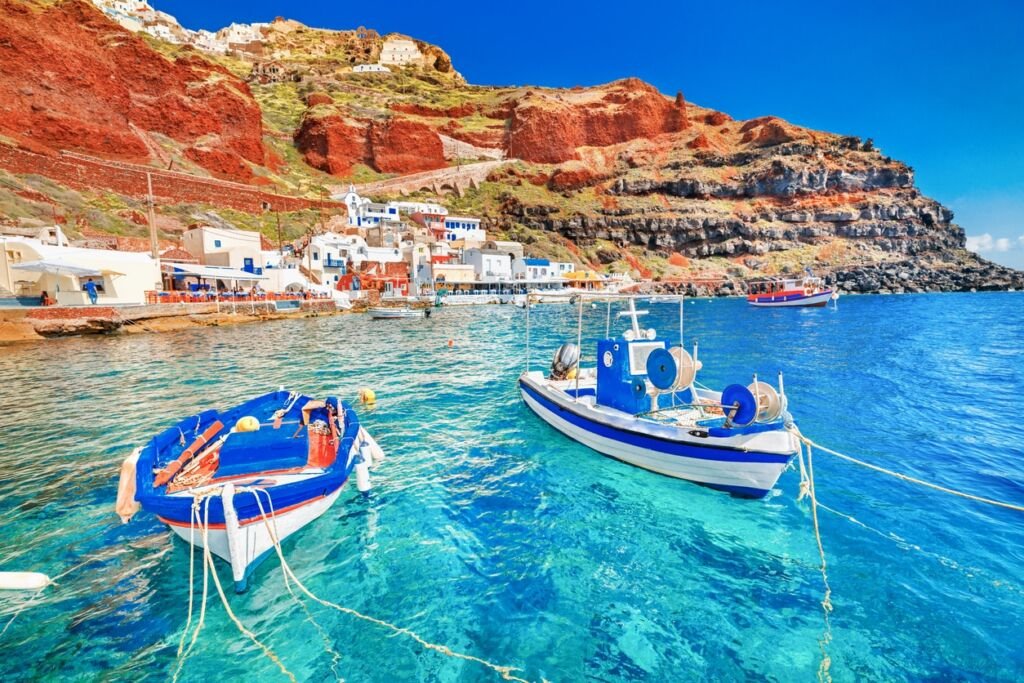
1. Aegean Islands
Situated between Turkey and mainland Greece, the Aegean Islands comprise approximately 1400 island and islets – most falling under Greece’s jurisdiction, and the remainder belonging to Turkey.
Traditionally subdivided into seven groups, many of the Greek Aegean Islands are of volcanic origin and are home to rugged and rocky landscapes. However, the larger islands boast lush valleys and great ancient structures that are begging to be explored.
Some of the most iconic islands in this region are Santorini, Mykonos, Sifnos and Naxos in the Cyclade. As well as the magnificent Kalymnos, Kos, Symi and lively Rhodes in the Dodecanese.
Santorini is home to the picturesque village of Oia, with iconic blue dome roofs overlooking the caldera. Rhodes, the largest island in the Dodecanese region, is famous for its breathtaking ruins, medieval castles, and rich history.
If choosing to camp in the Aegean Islands, expect majestic coastal views, fascinating archaeology, exquisite cuisine, picturesque towns, as well as scenic hiking and cycling trails.
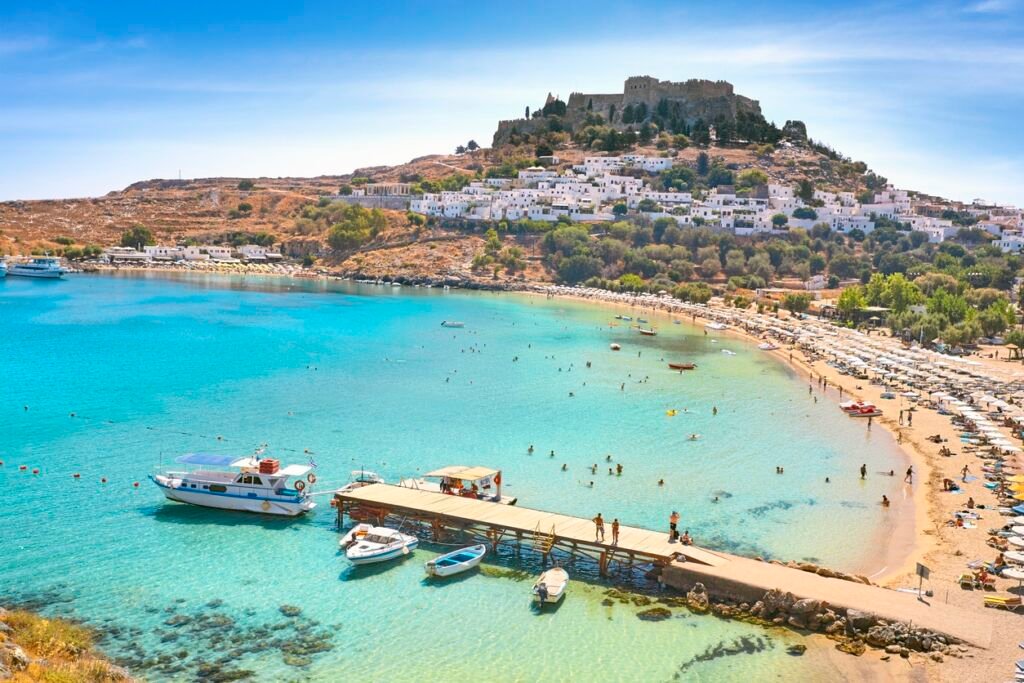
2. Crete
Known as the fifth largest island in the Mediterranean Sea, Crete is part of the Aegean Islands but deserves its own section as it’s a popular camping destination in its own right.
This island has countless pretty beaches, more than 1,000 kilometers of coastline, ancient ruins as well as majestic mountains that rise to over 2,400 meters – perfect for hiking.
Weaving in vibrant cities and picturesque villages, Crete is home to some of the most beautiful beaches in Greece, such as Elafonissi – world renowned for its pink sand. There’s also Balos Lagoon in Chania – a favourite of travel magazines.
If camping in Crete, you can expect access to some of Greece’s best beaches and traditional towns, but also some of the country’s best hiking trails. (Recommended: The Six Prettiest Islands in Greece).
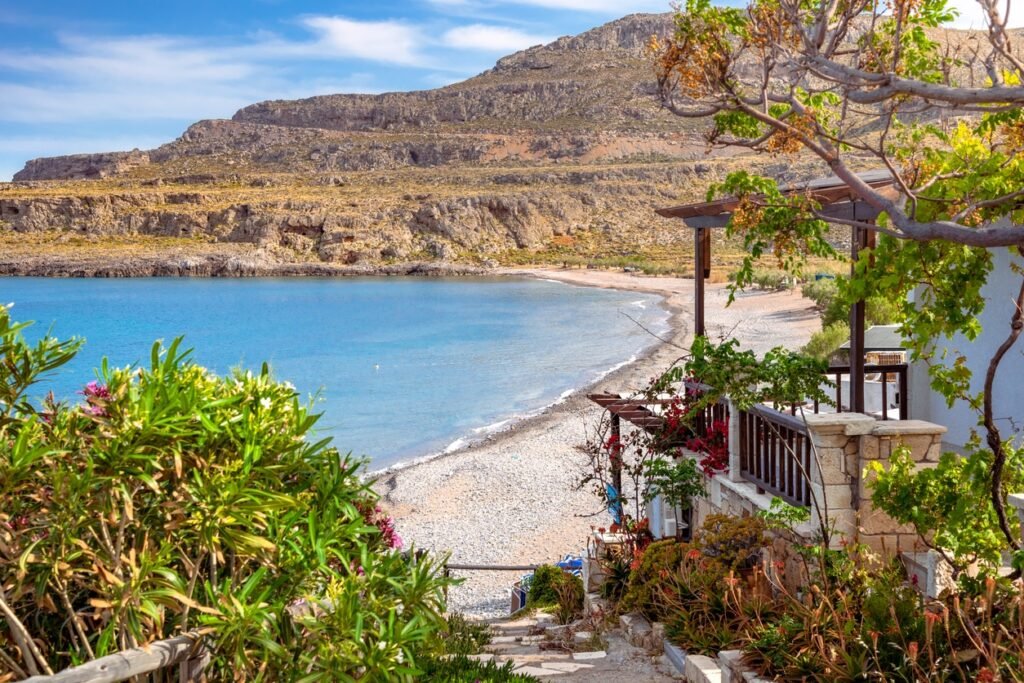
3. Ionian Islands
The Ionian Islands are home to some of the most famous Greek islands, with Corfu, Paxos, Kefalonia, Zakynthos (Zante), Lefkas, Ithaca and Kythira all popular holiday destinations.
Situated off the west coast of mainland Greece, these mesmerising islands are brimming with rich culture and history, amazing Venetian architecture, stunning landscapes and some spectacular beaches.
If you are looking for tranquility and relaxation, the islands of Ithaca, Paxos and Kythira are ideal destinations for camping in Greece.
However if you are in search of adventure, activities and nightlife, then the islands of Zakynthos, Kefalonia, Lefkada and Corfu may suit your Greece camping adventure more.

4. Mainland Greece
If you are seeking a very authentic Greek experience where you are amongst locals in off the beaten track destinations, then mainland Greece could be the place for you.
This region is rich in flora and fauna, rivers, lakes and mountain ranges, as well as quaint villages and towns that are usually bypassed by tourists.
This area is not as developed as the islands, thus preserving its genuine authenticity and offering you a chance to see another more traditional side of Greece. You will love the ancient fortified towns, tranquil fishing villages, untouched coastlines, and unaltered and pristinely kept archaeological sites here.
Some of the most popular destinations in mainland Greece include Olympia, Athens, Meteora, Nafplion, and Nafpaktos, but we recommend heading to more rural parts too. You should also try and visit the fascinating archaeological sites of Delphi – an ancient religious sanctuary which dates back to the 8th century B.C. and the Oracle of Apollo.
If you’re looking for exceptional hiking trails, an untouched landscape, and a more cultural experience, then mainland Greece could be the best place for your camping vacation.
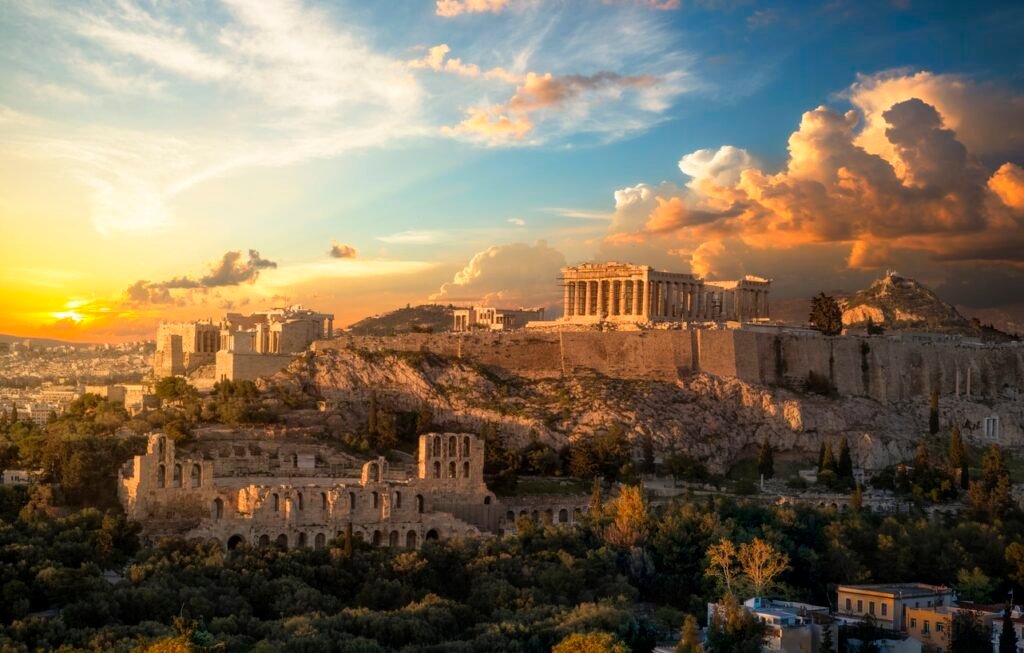
Some Of The Best Campsites In Greece For Fun, Views & Adventure
There are many affordable campsites in Greece. Below are a few of our favourites, separated by those four areas we introduced you to above.
Aegean Islands Campsites
1. Santorini Camping
Located in vibrant Fira on one of Greece’s most beautiful islands, Santorini Camping is open from March 1st to November 30th and boasts a large seasonal pool and a poolside snack bar.
It has great accommodation options and amazing facilities, and you can easily access restaurants, bars, shops and a lively nightlife just 350m from the site.
This Greece campsite is all about the location, but with that comes a price.
Price: From €30 per night
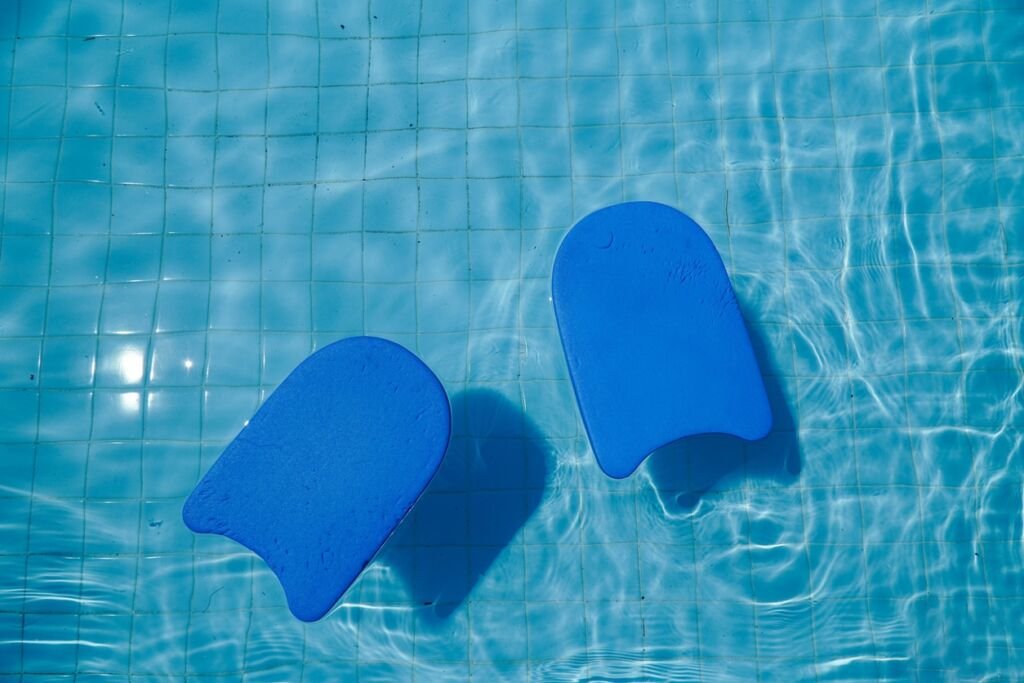
2. Makis Camping
Beautifully located in Kamares, Sifnos, this shady well-maintained campsite has good shared facilities and is about 600m away from the port.
Open from 1st March to 31st October, Makis Camping is also just two minutes away from the beautiful sandy beach of Kamares, whilst the Church of St. Symeon is a leisurely 15 minute walk away.
All of that, plus we found the staff to be excellent, helpful, and the whole place exceptionally friendly.
Price: From €8 per person per night

Crete Campsites
1. Camping Koutsounari
Located just five minutes from Megali Beach, this well-maintained campsite in Ierapetra has marked out pitches with shade and is full of olive trees and flowers.
The enchanting Waterfall of Milona and hiking trails are located just a few km away, and you can also enjoy authentic Greek and Cretan cuisine at the on-site restaurant pool-bar.
Price: From €7 per person per night

2. Grammeno Camping
Open all-year round, Grammero Camping is located right by the beach and near the charming historical city of Chania.
There’s great shared facilities, free WiFi, free sunbeds, an on-site restaurant/bar with Cretan cuisine, and very good public transport links. This place has the whole package.
Enjoy the clear water of the Libyan Sea, alongside the serene rural setting which is perfect for relaxing. You will love the myriad of walks in the nearby mountains, and the many options for water activities at the beaches close by.
Or take the bus into Chania for restaurants, nightlife and its famous 14th century harbour.
Price: From €8 per person per night

Ionian Islands Campsites
1. Camping Paleokastritsa
This family-orientated campsite located on the charming island of Corfu has ample space to pitch your tent, park your car, and let kids run around and play!
It has great facilities on site, including a children’s playground, and also BBQs to use. We love Palaiokastritsa Beach, located 2 km away and the pretty Byzantine castle, Angelokastro, which is just 3.3 km away. Perfect for family exploring.
Price: From €6 per person per night

2. Tartaruga Camping
Located on the southern island of Zakynthos in the Ionian Sea, this stunning campsite has lots of shade thanks to its 700 trees!
Set on a hillside, you will get incredible views over the sea to the tiny picturesque island of Marathonissi which is famed for its sea caves, beach and marine park.
It also has a nice on-site taverna (ouzo anyone?), amazing views, and has direct access to the beach. If you are lucky, you can even spot loggerhead turtles that visit the beach. Now that’s a special holiday experience.
Price: From €6 per person per night

Mainland Greece Campsites
1. Camping Athens
Located in Athens, this immaculate campsite is situated close to attractions such as Palataki (ten minutes walk away) and the ancient Church of Agios Eleftherios (15 minutes away). There’s an on-site restaurant-bar, good shared facilities, and a regular bus service.
We recommend trying Trattoria Casa Bianca, a great nearby Italian restaurant that serves mouthwatering pizzas.
This place is all about the location and the opportunity to see and experience the capital of Greece at an extremely affordable price.
Price: From €10 per person per night

2. Lefka Beach Camping
Located in one of Greece’s most stunning regions, this campsite is close to many historical landmarks and amazing beaches. For example, just 13km away is the scenic Nafplio, known as the first capital of Greece.
But on top of that it’s situated right beside the beach and the wonderful turquoise colours of the sea.
Lefka Beach Camping also has great facilities, lots of shade from beautiful aspen and pine trees on site, and easy access to the Ancient Theater of Epidaurus, The Acropolis of Tiryns and The Acropolis of Ancient Asini.
It’s in an all round fantastic location for exploring ancient Greek history, plus it’s right by the beach. You can’t get much better than that in mainland Greece!
Price: €20 per night for two people in a tent with car and electricity hookup
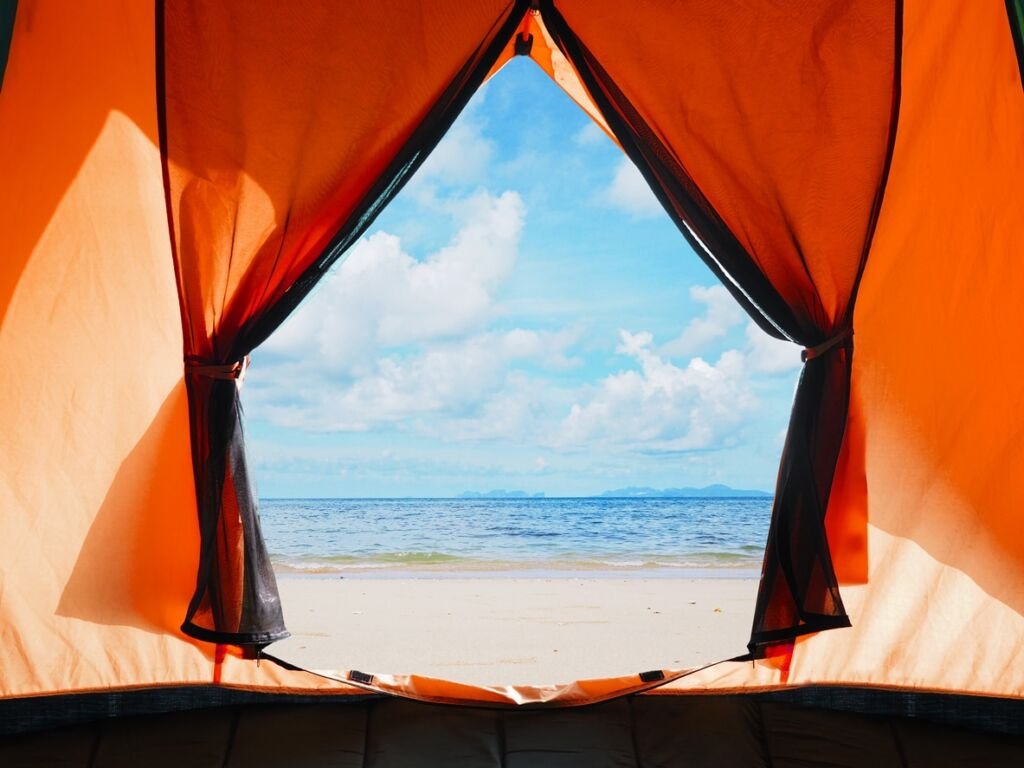
Wild Camping In Greece: Everything You Need To Know
DISCLAIMER: Below we give general advice, but we always recommend staying in an official campsite. If you choose to go wild camping/dispersed camping, then make sure you do so with someone who already knows the area where you’re planning on camping for your own safety.
Wild camping in Greece isn’t officially allowed. Although campers are allowed to pitch their tent if they have the permission of a landowner. Wild camping on beaches in Greece is also forbidden.
However as Greece is a popular area with amazing natural beauty, some outdoor enthusiasts do end up wild camping in Greece. Thankfully, free camping is sometimes tolerated by locals if you respect the land, camp far from buildings, and stick to the principles of leave no trace.
If you do want to wild camp in Greece, you may be asked by police what you are doing. The police tend to be polite, but will investigate any tents they see that are set up outside of campsites.
If it’s late at night – and you’re quiet, in a small group, and not causing a nuisance – police will probably let you stay, but will likely ask that you move on in the morning. However if they ask you to move, then don’t argue.
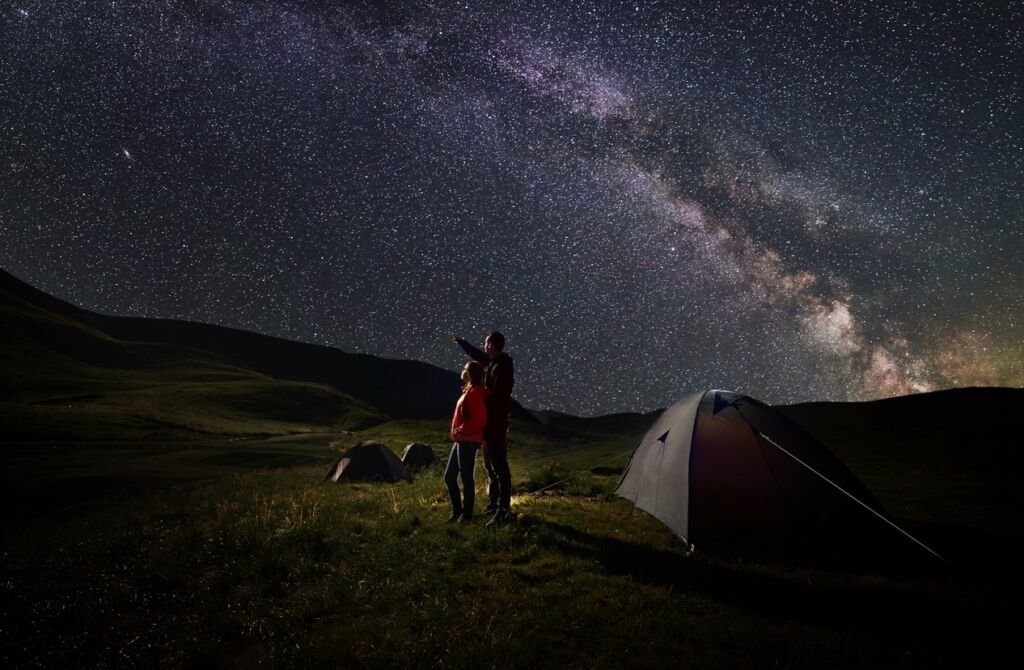
If you are planning to wild camp in Greece – and can’t be swayed to stay in a campsite instead – we’ve compiled the following guidelines to help keep you out of trouble and camp in a considerate manner:
- You should camp in the same place for one night only, and pitch your tent discretely and in a remote place which will not be easily seen. Therefore don’t camp in or near settlements, someone’s farm or on cultivated land. If you think you’re on private land, always seek out the landowner and ask permission. They may request a small fee.
- Campers should set up their tent at dusk, and take it down at dawn. A tent that is discreet, blends in with the landscape, and pitches quickly is best. Therefore a lightweight walking tent like this one would be a great investment for someone planning to wild camp in Greece.
- If you are walking a trail, make sure you choose to camp in a place that won’t be in any other hiker’s or walker’s way.
- When wild camping in Greece, you should never make a campfire. Instead of building campfires, you could look into using a storm cooker for cooking – but check local laws first. Then there is much less wildfire risk and you can cook knowing that the fire is contained. We believe the best ones on the market are Trangia storm cookers. Portable solar ovens, like this one by GoSun, are also a good fuel-less option.
- Take any rubbish with you, and leave your camping spot exactly the way you found it.

Camping In Greece: The Weather & Best Months To Visit
Most visitors choose to come to Greece in summer, when daytime temperatures range around 21 to 33 Celsius.
However summer is the busiest and most expensive season, and we recommend booking your campsite in advance. Still, it’s a great season for coastal walks, sunbathing and swimming. It can get quite warm inside tents when camping, so make sure you choose a shady pitch.
Autumn and spring are cooler – ranging around 8-25 Celsius during the day depending on the month. Both are great times to avoid the peak tourist season, tackle some of Greece’s best walking trails, and enjoy landmarks without a crowd.
Winter marks the low tourist season, where daytime temperatures range from 5-15 degrees Celsius. Expect there to be rainy days, but the fresh air on walks during this season is enjoyable and there’s very few tourists.
If you want to enjoy some snow, the northern plains of Thessaloniki are perfect for exploring a much colder side of Greece.

